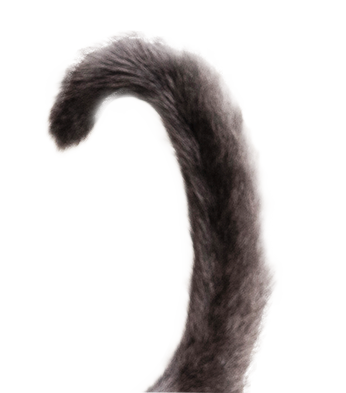
- arrow_back Home
- keyboard_arrow_right Tarot For Mental Well-Being
Unlocking Inner Wisdom: The Benefits of Using Tarot for Inspiration, Motivation, and Mental Well-Being

Tarot For Mental Well-Being lmadmin November 21, 2024
Tarot cards, long associated with mysticism and divination, have found a new audience in recent years. Beyond their esoteric roots, tarot is being embraced as a tool for self-reflection, inspiration, and personal growth. When used intentionally, tarot can help reduce anxiety, combat depression, and foster motivation, offering a unique way to navigate life’s challenges. This blog delves into the benefits of tarot and how it can support mental well-being and personal empowerment.
What Is Tarot? A Modern Perspective
Traditionally, tarot decks consist of 78 cards divided into the Major Arcana, which represent overarching life themes, and the Minor Arcana, which deal with day-to-day events and emotions. While tarot has been historically tied to fortune-telling, modern practices emphasize its use as a reflective tool for self-discovery and growth.
In this context, tarot isn’t about predicting the future. Instead, it’s about accessing your intuition, uncovering subconscious thoughts, and finding clarity in your life. Each card serves as a mirror, reflecting aspects of your psyche, emotions, and experiences.
The Therapeutic Benefits of Tarot
1. Provides a Framework for Self-Reflection
One of the most powerful aspects of tarot is its ability to prompt introspection. Each card has a rich tapestry of symbolism, archetypes, and meanings that encourage you to examine your thoughts, feelings, and behaviors.
For instance:
- Drawing the Hermit may invite you to consider whether solitude or deeper self-exploration is needed.
- The Two of Swords can help you confront indecision or acknowledge conflicting emotions.
This reflective process can uncover hidden issues or reveal new perspectives, helping you gain clarity on your challenges.
2. Fosters Emotional Validation
For those struggling with anxiety or depression, tarot can act as a validating tool. Often, mental health challenges leave people feeling isolated or misunderstood. Tarot’s universal archetypes—such as strength, vulnerability, and resilience—can remind you that your feelings are part of the shared human experience.
Drawing cards like the Nine of Swords (representing worry or fear) can serve as a gentle acknowledgment of your struggles. Meanwhile, cards like the Star (symbolizing hope and renewal) offer encouragement and a reminder of brighter possibilities ahead.
3. Encourages Mindfulness and Presence
Engaging with tarot requires slowing down and focusing on the present moment. Shuffling the deck, selecting cards, and interpreting their meanings can be meditative acts that ground you in the here and now.
For example:
- Journaling your interpretations of a daily card pull can help you process emotions.
- Spending time contemplating a single card can enhance mindfulness, allowing you to let go of intrusive thoughts.
4. Boosts Intuition and Inner Confidence
Many people doubt their ability to make decisions, often seeking external validation. Tarot empowers you to trust your instincts by giving you a tool to explore your inner voice.
For instance, if you’re facing a career dilemma, pulling a card like the Chariot might symbolize determination and forward movement. The process of interpreting the card reinforces your ability to evaluate and trust your judgment.
As you grow more comfortable with tarot, you may notice an increase in your confidence and decision-making abilities.
5. Cultivates Motivation and Inspiration
Life can feel stagnant when you’re uninspired. Tarot can reawaken your sense of possibility by offering new perspectives or creative prompts.
Imagine pulling the Fool card, which symbolizes new beginnings and taking risks. This could encourage you to start a new project, step outside your comfort zone, or embrace life with curiosity. Similarly, cards like the Ace of Wands might inspire you to reignite a passion or pursue a long-held dream.
6. Acts as a Gentle Self-Therapy Tool
While tarot is not a replacement for professional therapy, it can complement mental health care by serving as a gentle self-help tool. Many people use tarot as part of their healing process, creating a space to explore their emotions without judgment.
When working through anxiety or depression, tarot can help:
- Identify underlying fears or triggers.
- Reframe negative thoughts into empowering narratives.
- Provide a structured way to track emotional progress over time.
How to Use Tarot for Anxiety and Depression
If you’re new to tarot or want to use it as part of your mental wellness journey, here are some simple steps to integrate it into your routine:
1. Start with a Simple Spread
- One-Card Pull: Draw a single card daily and reflect on how its message relates to your feelings or challenges.
- Three-Card Spread: Use a spread with positions for past, present, and future, or situation, obstacle, and advice.
2. Set an Intention
Before pulling cards, take a moment to focus on your intention. For example:
- “How can I navigate my anxiety today?”
- “What do I need to focus on for emotional balance?”
3. Use a Journal
Writing down your interpretations can help you process your emotions and recognize patterns. Journaling also makes it easier to track progress and revisit insights later.
4. Combine Tarot with Other Wellness Practices
- Pair tarot with meditation by visualizing yourself embodying the qualities of a card like the Strength or Temperance.
- Use tarot alongside affirmations. For example, if you pull the Sun, you might affirm: “I radiate positivity and embrace life’s blessings.”
Addressing Skepticism and Misconceptions
It’s important to note that tarot is not a magical fix or a way to predict the future with certainty. Its true value lies in its ability to guide self-reflection and growth. If you approach tarot with an open mind, it can become a supportive tool rather than a rigid framework.
For skeptics, consider viewing tarot as an artistic and psychological exercise rather than a mystical practice. The archetypes and imagery can stimulate your imagination and offer valuable insights regardless of your beliefs.
Incorporating Tarot into Daily Life
For lasting benefits, consistency is key. Here are some tips for integrating tarot into your routine:
- Morning Ritual: Start your day with a card pull to set an intention or focus.
- Weekly Check-Ins: Use tarot on Sundays to reflect on the past week and prepare for the week ahead.
- Creative Inspiration: Use tarot prompts to spark journal entries, art projects, or new ideas.
Final Thoughts
Tarot is more than a deck of cards—it’s a gateway to inner wisdom, self-discovery, and healing. Whether you’re seeking clarity, battling anxiety, or searching for inspiration, tarot can provide a nonjudgmental space to explore your thoughts and emotions.
While it’s not a substitute for professional mental health care, tarot can be a valuable companion on your journey to well-being. With an open mind and a willingness to explore, you might find that the answers you seek are already within you, waiting to be revealed one card at a time.
Have you used tarot as part of your wellness routine? Share your experiences in the comments below!


Discover fun and engaging indoor activities to burn off your dog’s energy and strengthen your bond.
Schedule
Mon – Frid: 7am – 6pm
Saturday: 9am- 4pm
Sunday: Only emergencies
Copyright 2099 Magazine.com. Lorem ipsum dolor sit amet.




Be the first to leave a comment